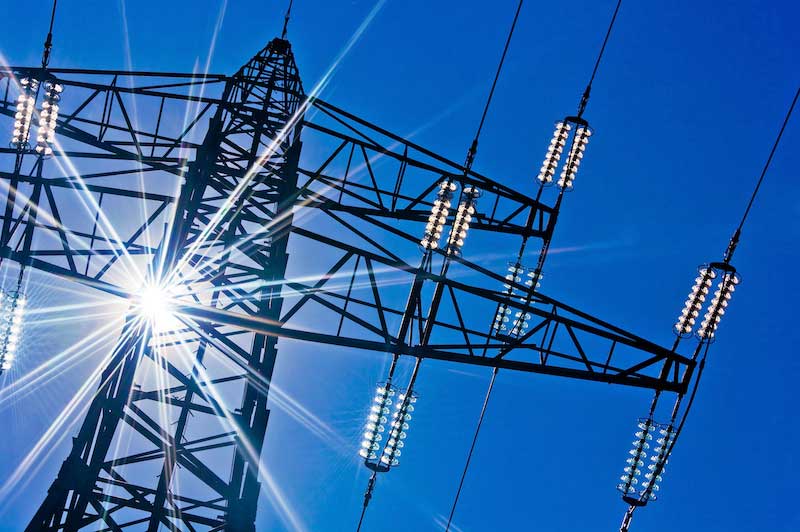
I'm happy to hear increasing support for clean energy, but we need more action behind words. CLF will continue to hold New England's decision-makers and regional grid operator accountable to climate change. Photo: Shutterstock.
Last winter’s electricity price spikes showed more clearly than ever the dangers of New England’s dependence on price-volatile fossil fuels. That’s one of the reasons why federal energy regulators came to Portland, Maine, in June to discuss New England’s electricity reliability in the winter months and the region’s over dependence on gas for heat and electricity. Major industry players, like state officials and gas company executives, convened to discuss these pressing problems. Notably absent from the list of speakers were climate advocates and residents of communities impacted by fossil-fuel energy infrastructure. I attended the forum – and looked forward to hearing a robust dialogue on how we can move our electric grid towards clean energy.
I was particularly excited because the federal regulators who convened the meeting oversee our regional electric grid operator, ISO New England. The ISO has a history of trying to push our region to build out more gas infrastructure and of creating obstacles that prevent clean energy resources from generating our electricity. I hoped the forum would include a conversation on how the ISO can step up on both issues. After all, ISO New England manages how and what sources of electricity are bought and sold for utility companies to deliver to customers in the region. In other words, the ISO can and should be playing a huge role in helping us move off fossil fuels and towards clean energy.
The forum did not disappoint – both in terms of Big Gas’ tired attempts at maintaining the fossil fuel status quo and surprising statements from ISO New England representatives praising clean energy. Here are three quotes from the forum and what they mean about how decision-makers and industry stakeholders are thinking about the climate crisis.
Ernesto Ochoa, Vice President – Commercial, Kinder Morgan: “It’s no secret to you guys. It’s no surprise that as a pipeline operator, we believe more [gas] infrastructure is needed in the region, not less. We’re going to continue to say so forever.”
The fossil fuel industry has far from given up trying to convince New England that we need to stay dependent on their polluting product. And while this statement from one of the country’s largest energy companies isn’t exactly shocking, the blunt, public admission that the company will never stop advocating for the fuels damaging our climate took me aback.
Kinder Morgan is adamant about business-as-usual. That’s despite everything we are hearing from federal, regional, and state officials about the key role that renewable resources and energy efficiency have in ensuring adequate energy supply in the region. It was disturbing to hear fossil fuel companies continue to beat their drum this loudly when climate change threatens our health and safety so tangibly.
Vamsi Chadalavada, Executive Vice President and Chief Operating Officer, ISO New England: “What really surprised us was to see the impact of the solar photo-voltaic [solar panel] installations on reducing the energy requirements in New England.”
Having an ISO New England executive publicly acknowledge and support the positive impact of solar power was one of the uplifting moments of this forum. Chadalavada is saying that solar panel installations are lowering overall energy demand in the region. That, in turn, has improved New England’s ability to maintain a reliable electric system year-round.
This rather extraordinary admission comes on the heels of a much-softened tone in the ISO’s 2022 winter outlook. That’s when, for the first time in years, the ISO predicted that we could manage the upcoming winter’s power demand without major disruptions to the grid. A stark contrast to their past refrains of a constrained gas supply causing rolling blackouts and power outages.
Even the CEO of the ISO, Gordan van Welie, credited New England’s work to improve energy efficiency and make solar power more widespread – an encouraging move. That clean energy programs and projects are helping the region meet its energy needs doesn’t surprise me. But that the ISO is acknowledging this fact does and is an important step toward the ISO’s facilitation of a transition to clean energy.
Rebecca Tepper, Secretary, Massachusetts Executive Office of Energy and Environmental Affairs: “The [energy supply] study [done by the ISO’s consultants, EPRI] showed us, if we didn’t already know it, the value of solar, even in the winter. I do agree with sense of urgency to continue on our clean energy procurements and the benefits that we are going to see from our offshore wind industry.”
While we need the ISO to step up on climate change, I find hope in the fact that our state leaders are taking charge and pushing for the region’s clean energy transition. This statement from Tepper shows that our state leaders recognize the importance of clean energy like solar power and wind – and the need to continue building out those resources to ensure a reliable and clean electricity supply.
What Comes After the Forum
The daylong New England electricity reliability forum offered an insightful look into whether we are making progress on clean energy and climate change in our region. When I first started this work, I never thought I’d hear ISO officials praise the power of solar energy. I left the forum feeling like we are moving the needle in the right direction.
And that progress is thanks to your support, which makes it possible for us to hold these decision-makers and industry stakeholders accountable.
But clearly, our work isn’t done. Big Gas and Oil have quite literally said they’re never going to stop peddling their climate-damaging fuels. And they will continue to show up to these conversations to make their status-quo viewpoints heard.
The forum was intended to allow industry members to discuss solutions to New England’s overreliance on gas for electricity and heat during the coldest months of the year. However, the event ended with few next steps on how we can keep electricity costs stable and our fuel supply reliable. While I’m pleased that ISO New England is toning down its fear mongering and acknowledging the benefits of clean energy, I still haven’t seen enough action behind these words – even during the forum itself. Clearly, we still need to push our regional grid operator to make climate change a part of its mission and eliminate policies that favor fossil fuels over clean energy.
My CLF colleagues and I will continue our work to hold the ISO and state leaders accountable. We will keep pushing for the clean energy transition we need to slow climate change. And, we’ll make sure that the fossil fuel industry doesn’t drown out the best interests of New Englanders for the sake of their own polluting profits. In the meantime, sign up for CLF’s e-news to make sure you’re up to date on ways you can use your voice and support our climate fight.



